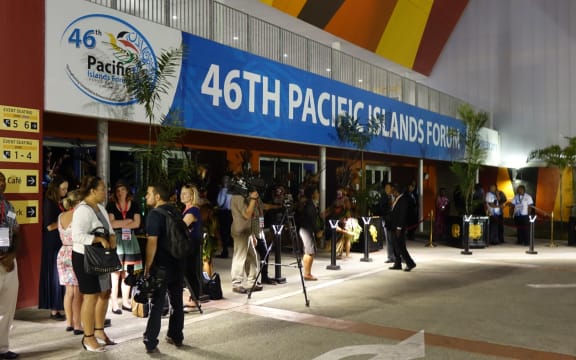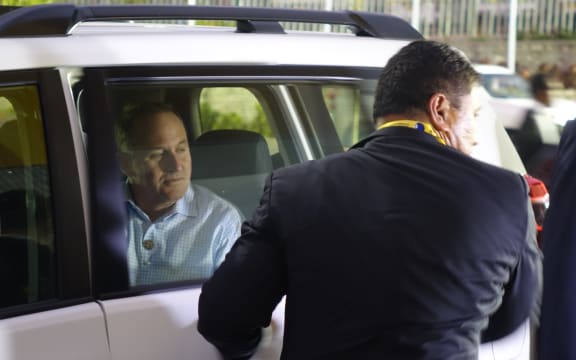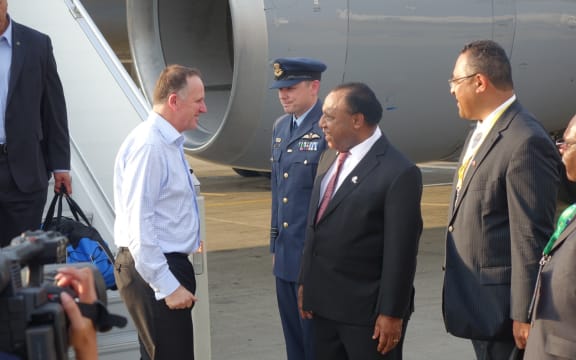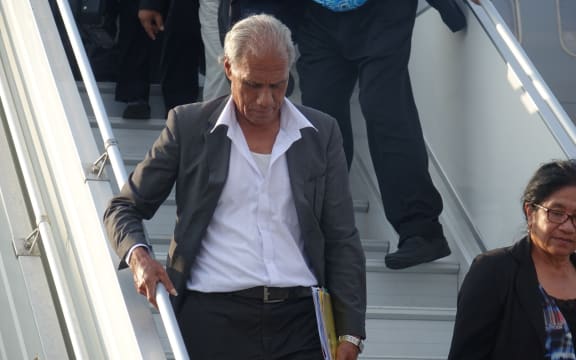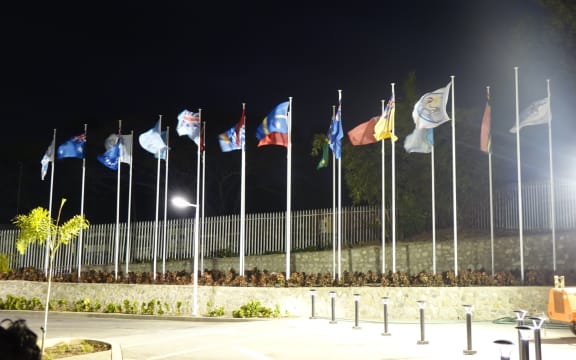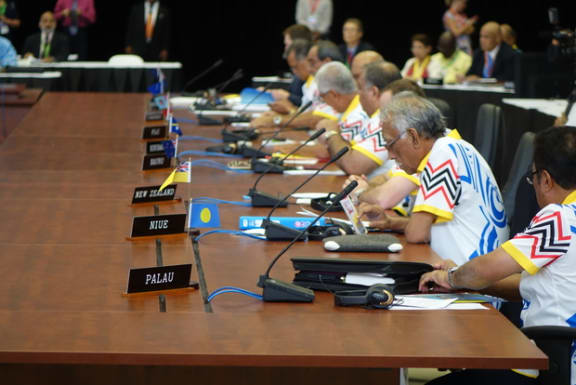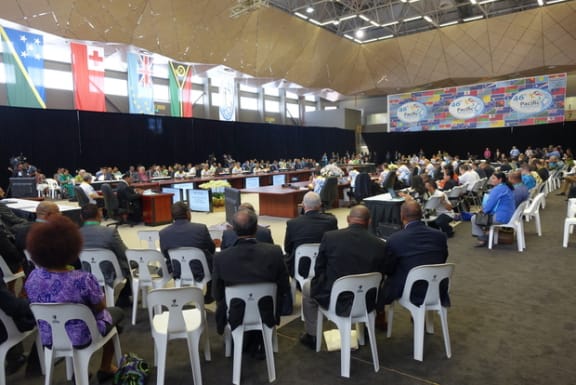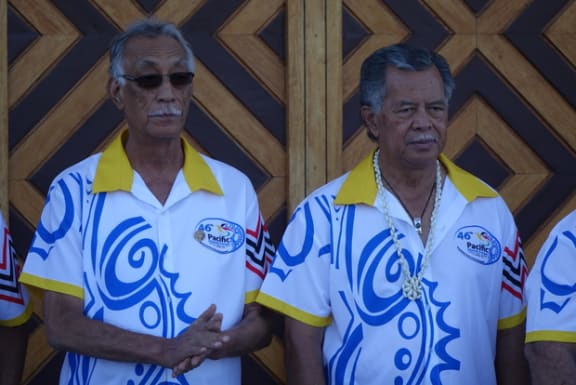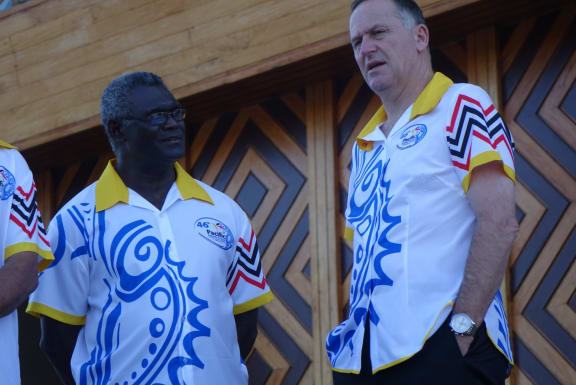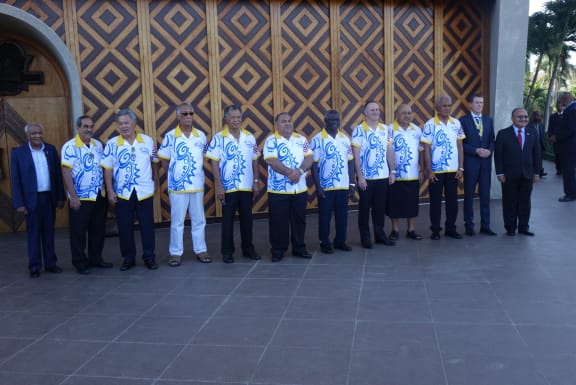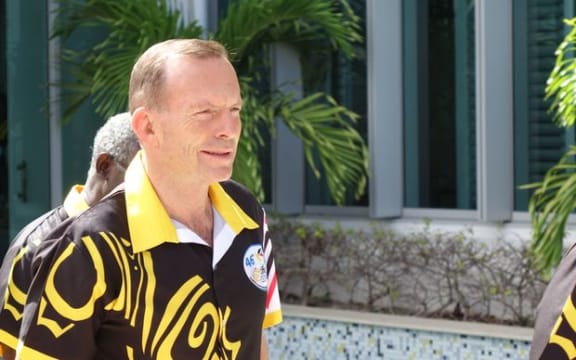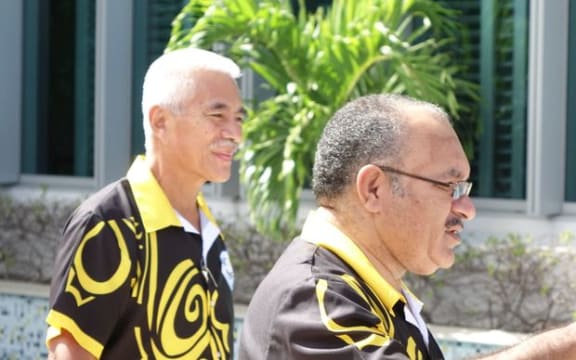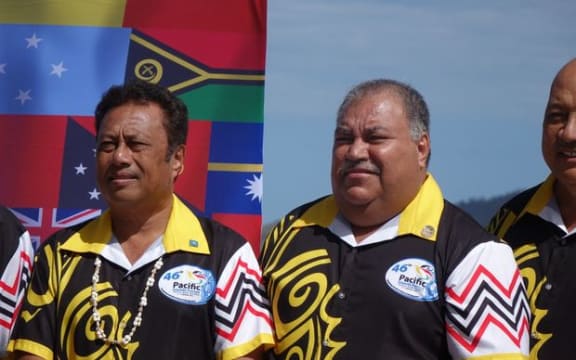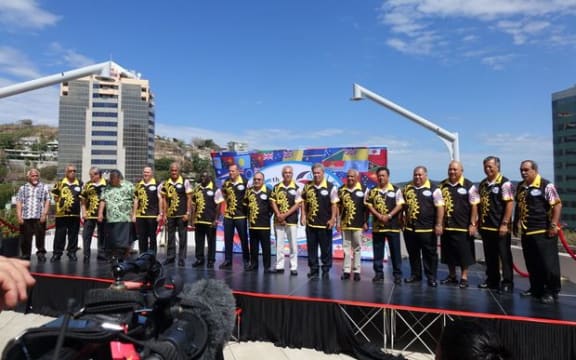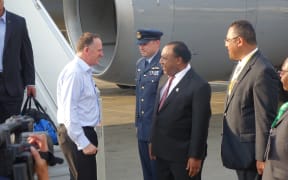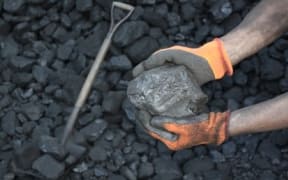A group of young New Zealanders is urging the government to take more action to protect the country from climate change.
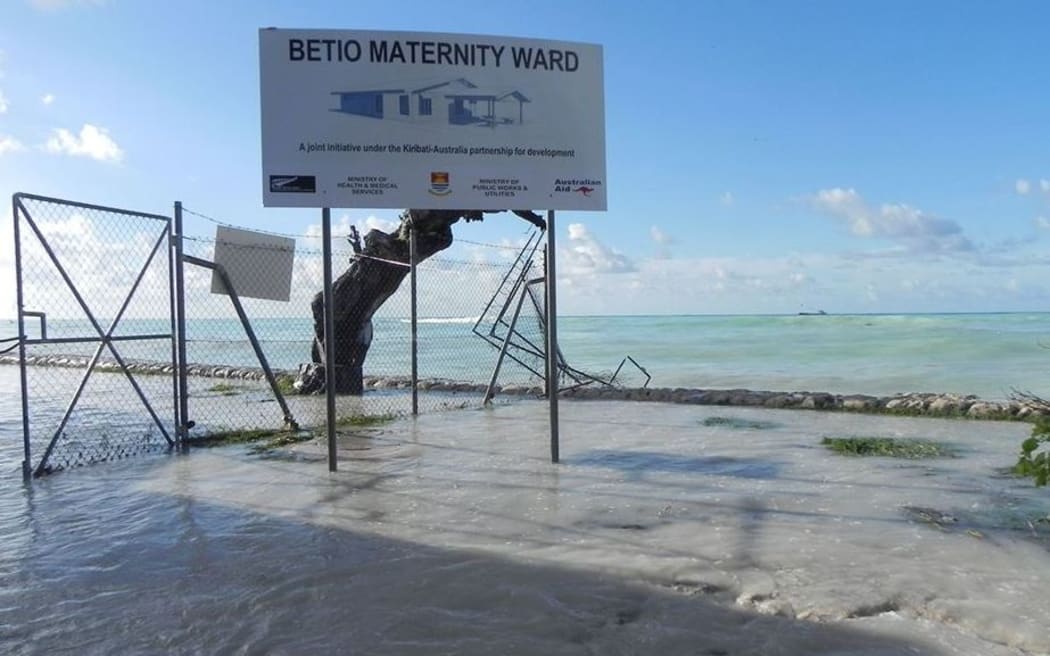
High tides damaged Betio Hospital in Kiribati earlier this year - and the country is preparing for a higher rate of damaging waves in future. Photo: Kiribati Ministry of Health
The eight, who will form the country's youth delegation at upcoming UN climate talks, campaigned in Wellington this afternoon to demand better leadership.
Group spokesperson Natalie Jones said the government's proposal to reduce the country's emissions to 11 percent below 1990 levels by 2030 was embarrassing.
Ms Jones said her generation needed to push for more action.
"Climate change poses a huge risk to our way of life here and because we're all young people - we're all eight of us in our 20s - climate change is going to affect us for the rest of our lives," she said.
"It's going to affect everyone our age around the world, everyone younger, and future generations to come."
The youth delegates hoped to raise awareness before travelling to the climate conference in Paris in December.
Islands stand strong on climate change
Meanwhile, Oxfam has said it is pleased Pacific Island governments are demanding more action to stop climate change - but, it said, New Zealand is not doing enough.
The leaders of small island nations held their ground this week at the Pacific Islands Forum as Australia and New Zealand sought consensus on a global warming target limit of 2°C.
The Pacific Island leaders had called for a limit of 1.5°C, as their countries are directly threatened by rising sea levels and more severe tropical storms.
Oxfam New Zealand policy adviser Luke Broughton said the flooding from rising seas in Tuvalu, Kiribati and the Marshall Islands was evidence that global warming was threatening their existence.
New Zealand was not doing enough, he said.
"We're seen as being leaders in the Pacific region and if we can't agree on such a fundamental question of survival for our Pacific neighbours then I think there are really hard questions we need to be asking of ourselves," Mr Broughton said.
